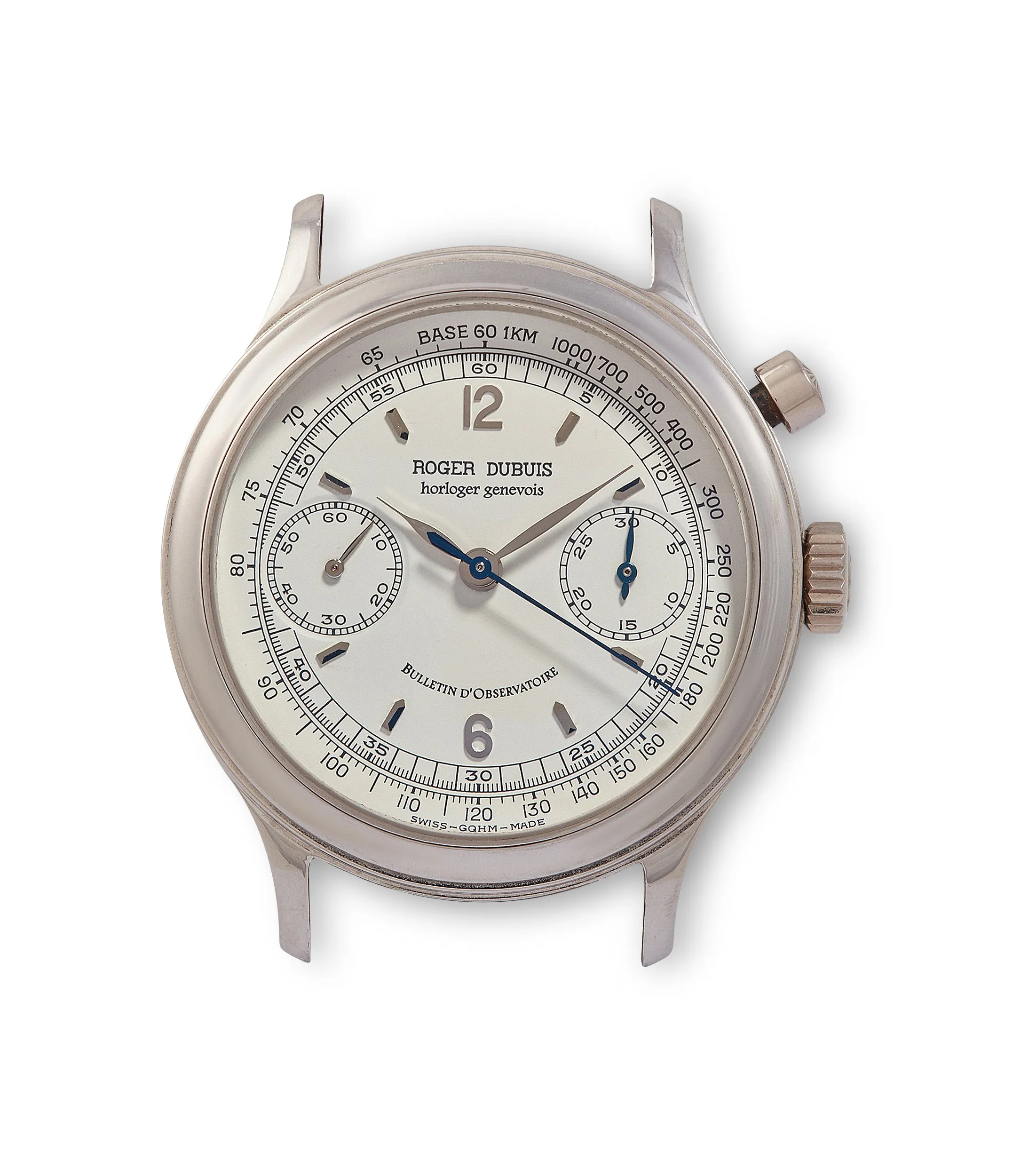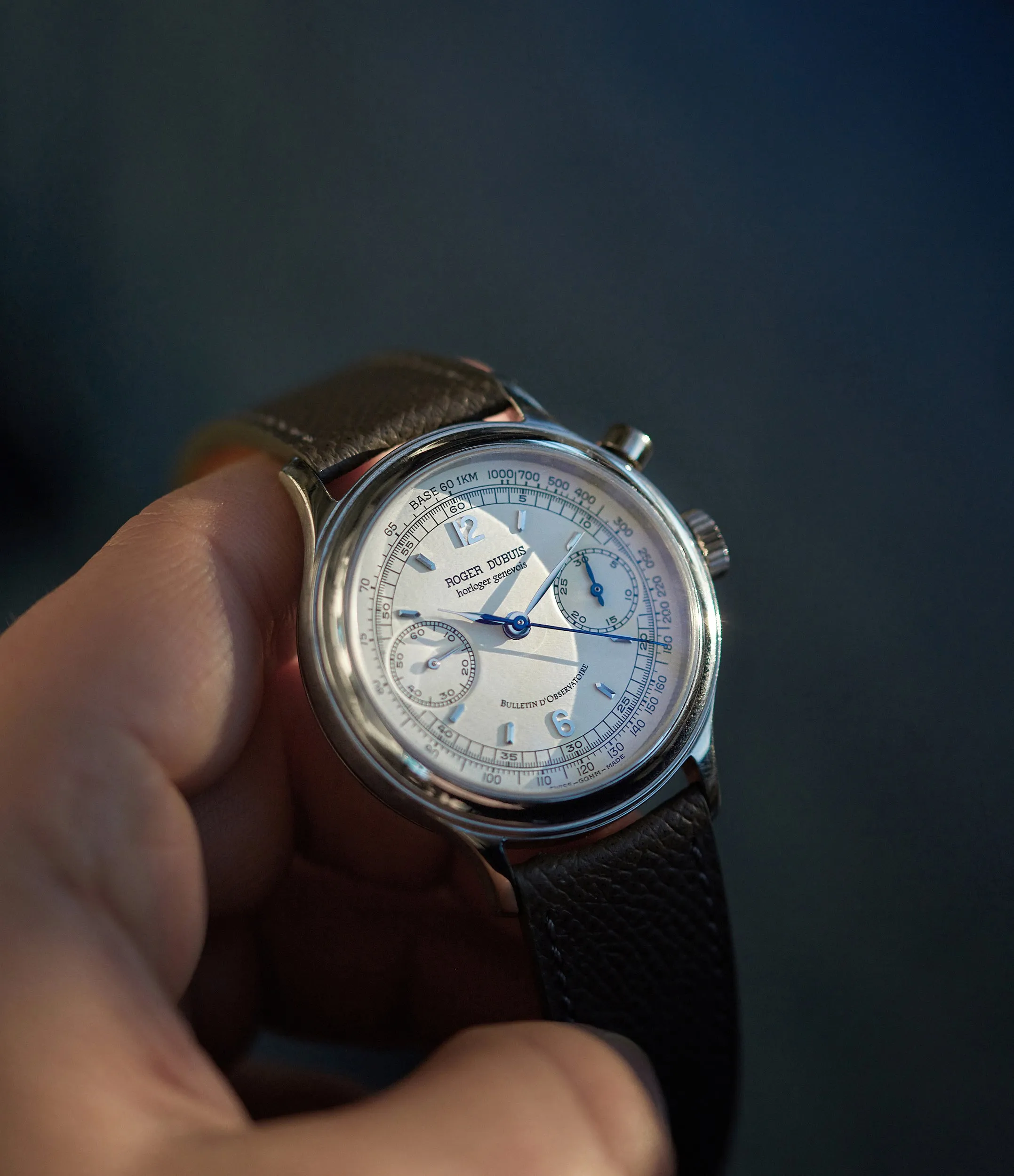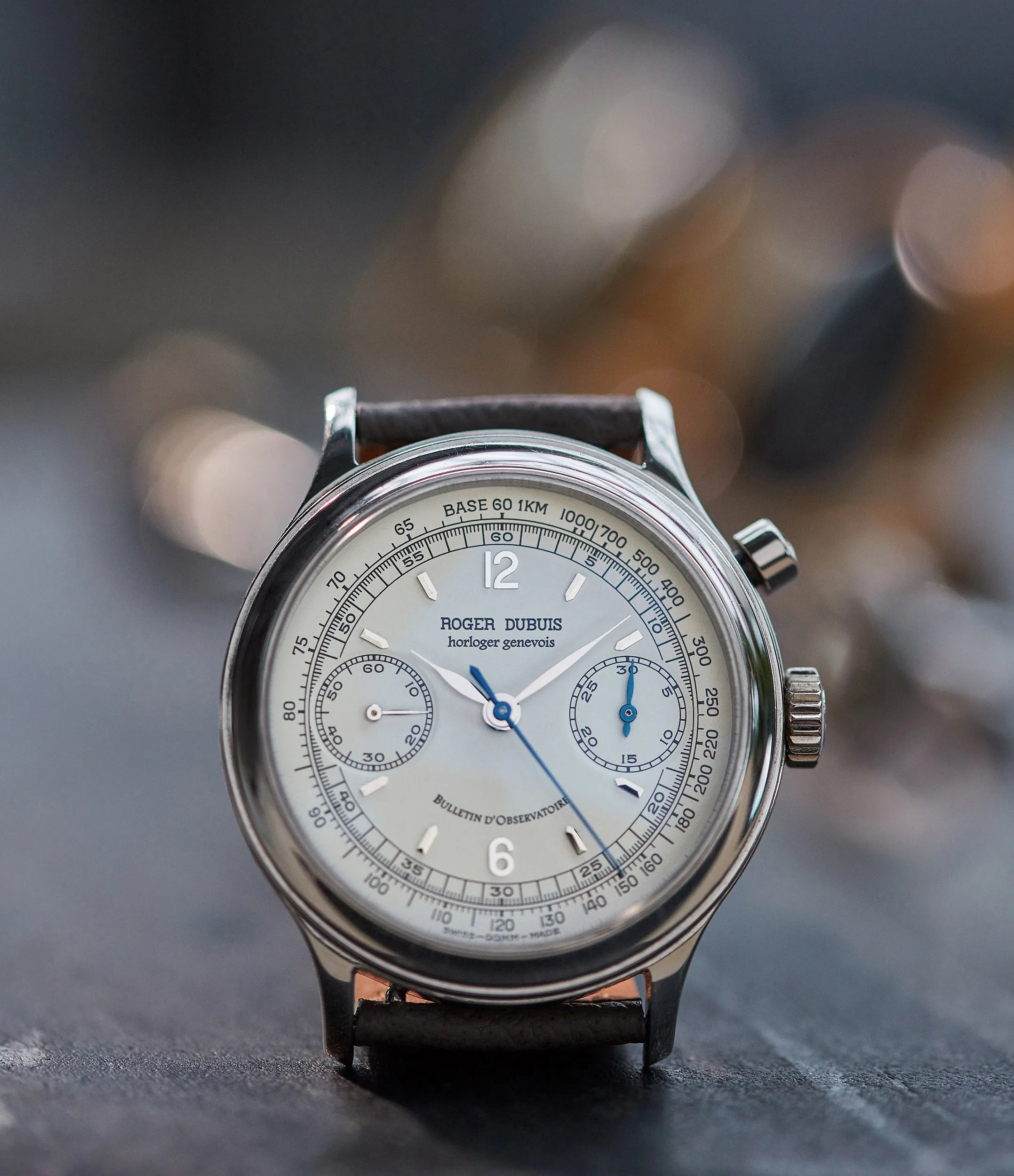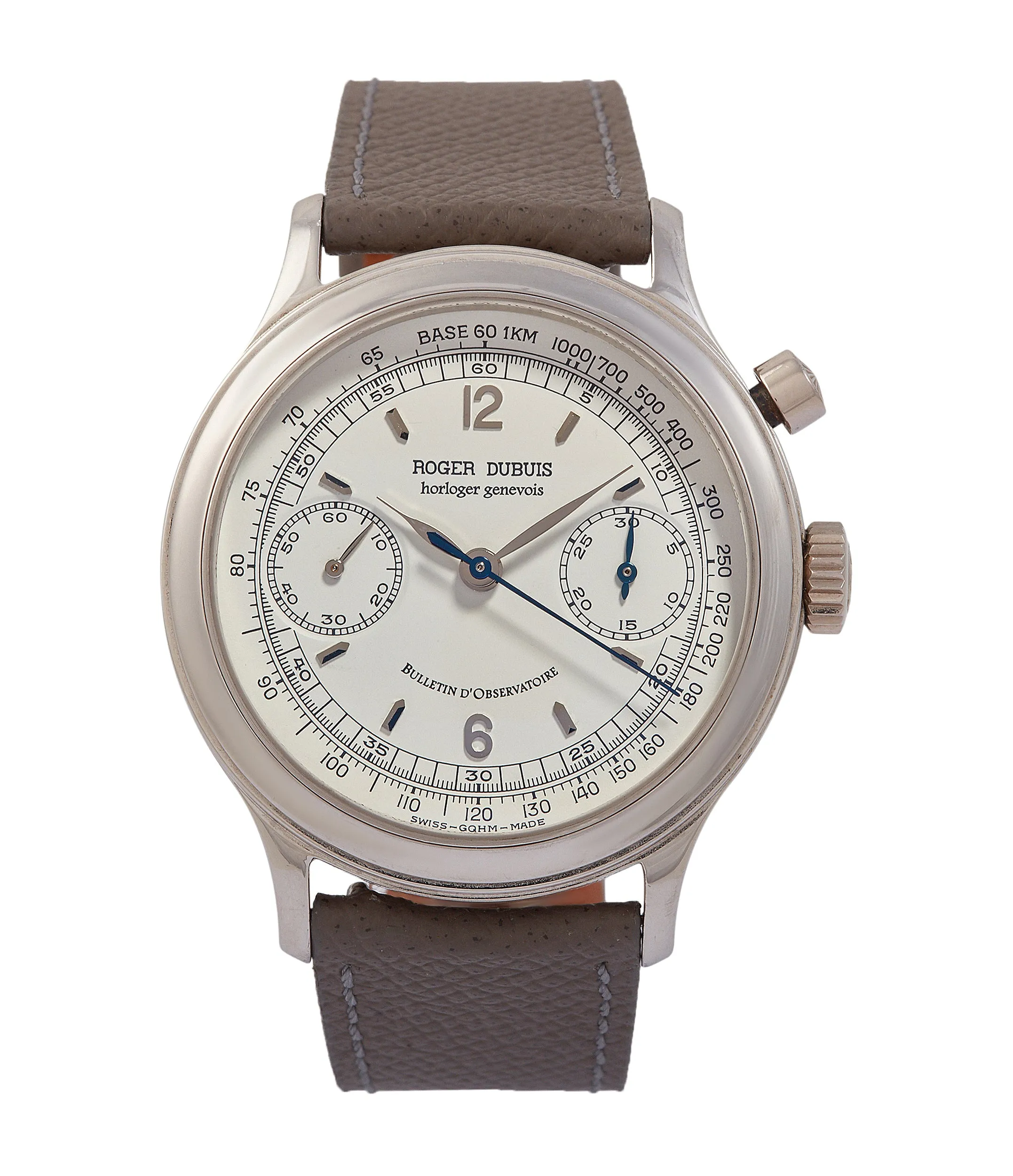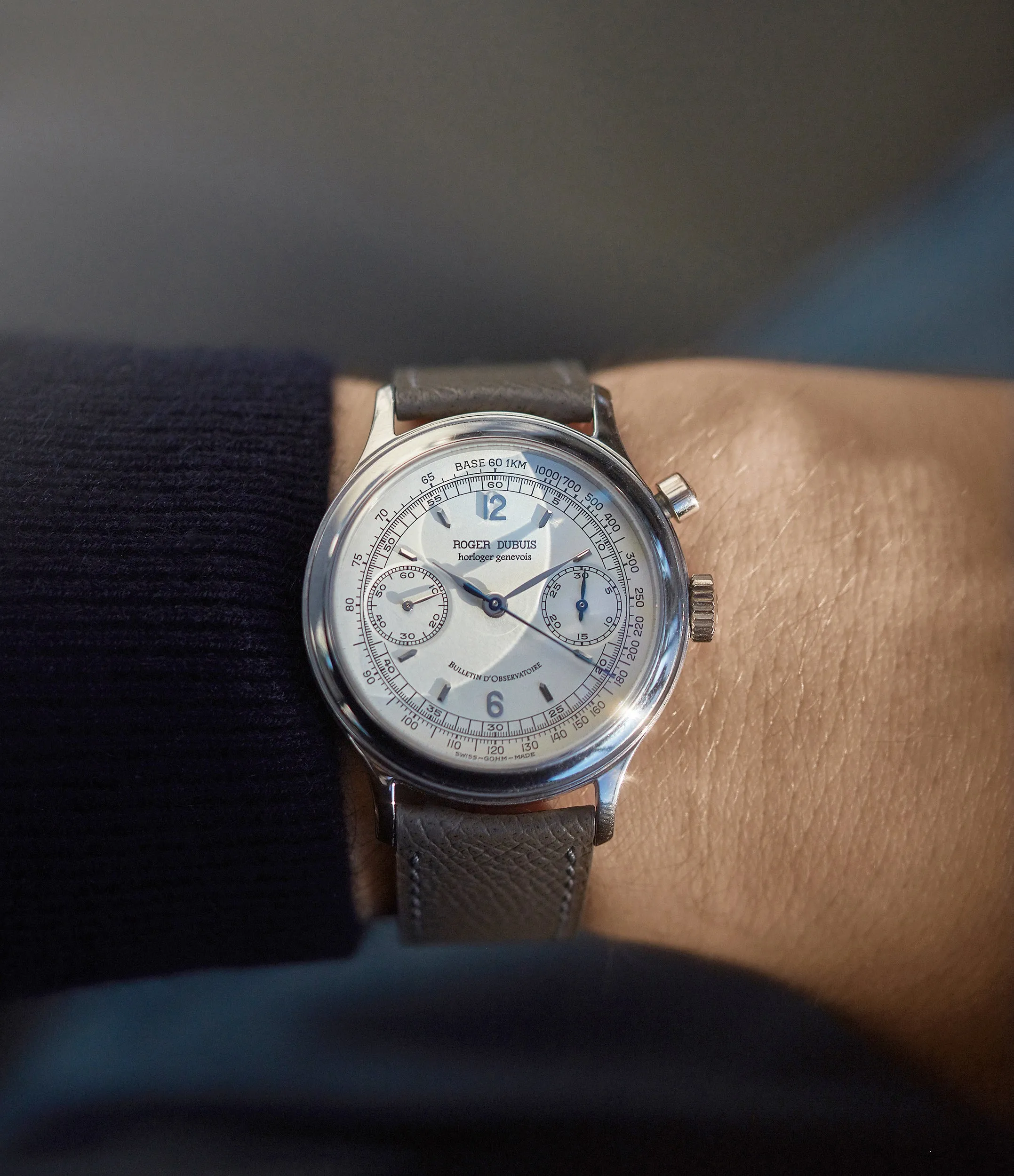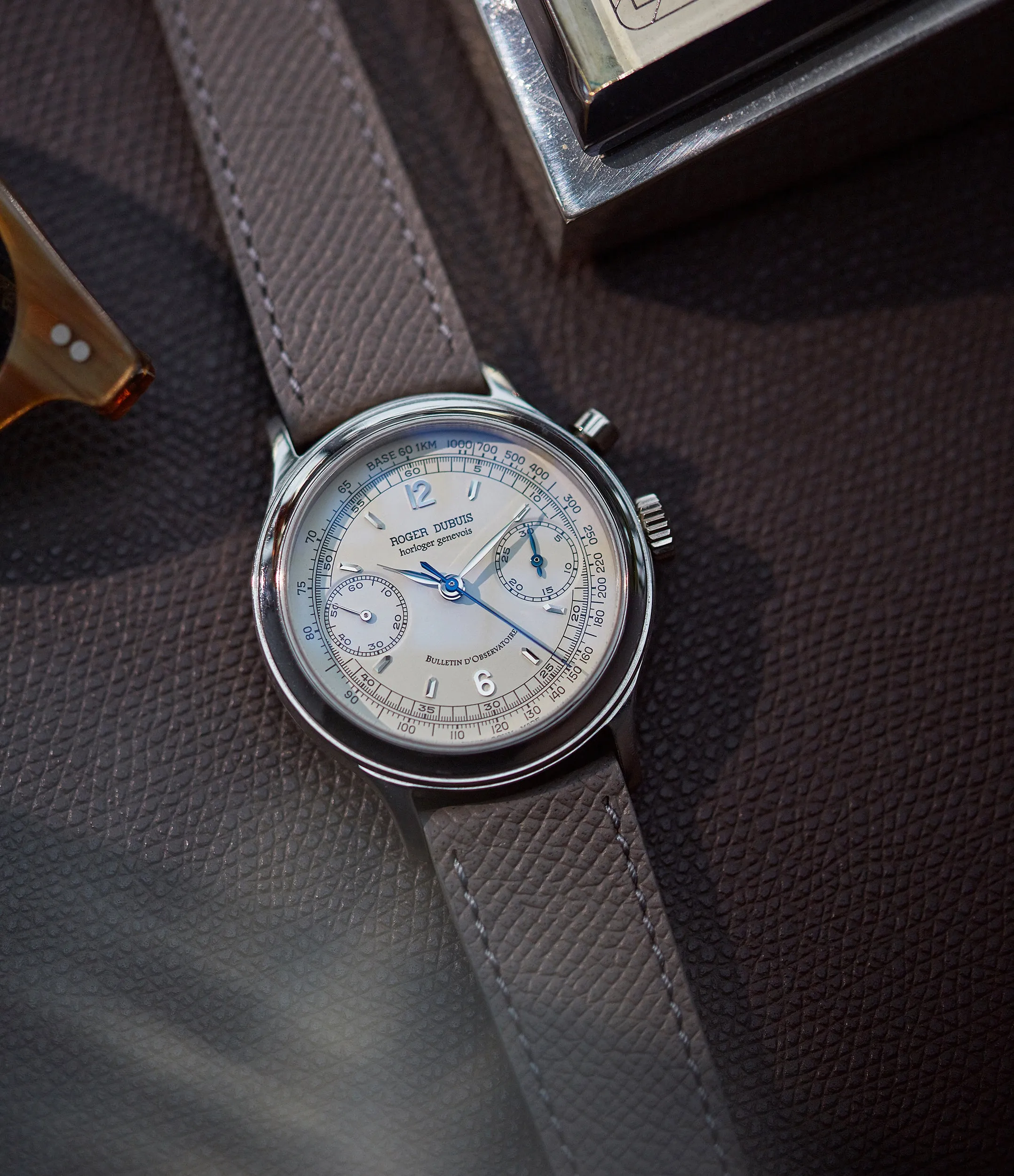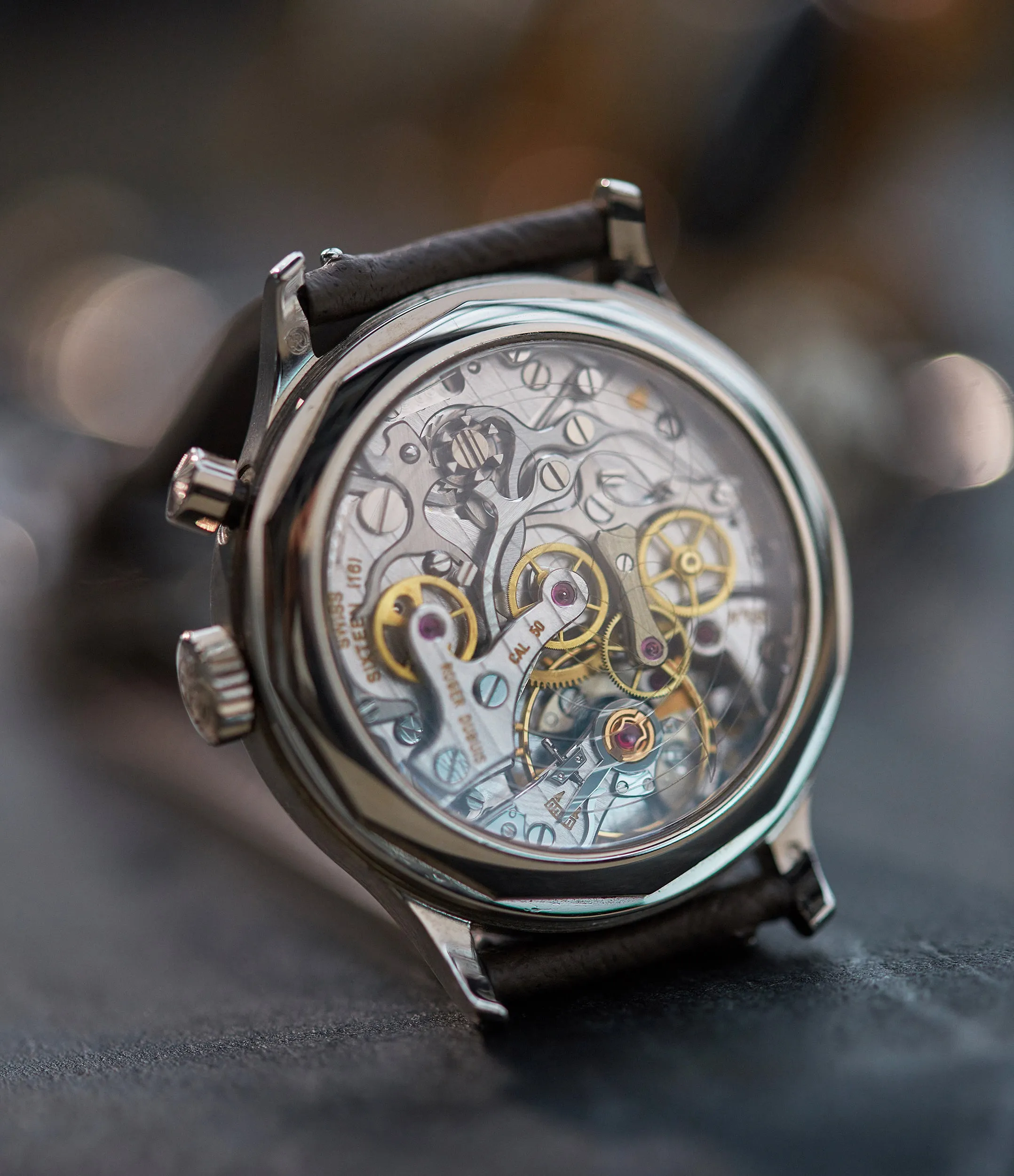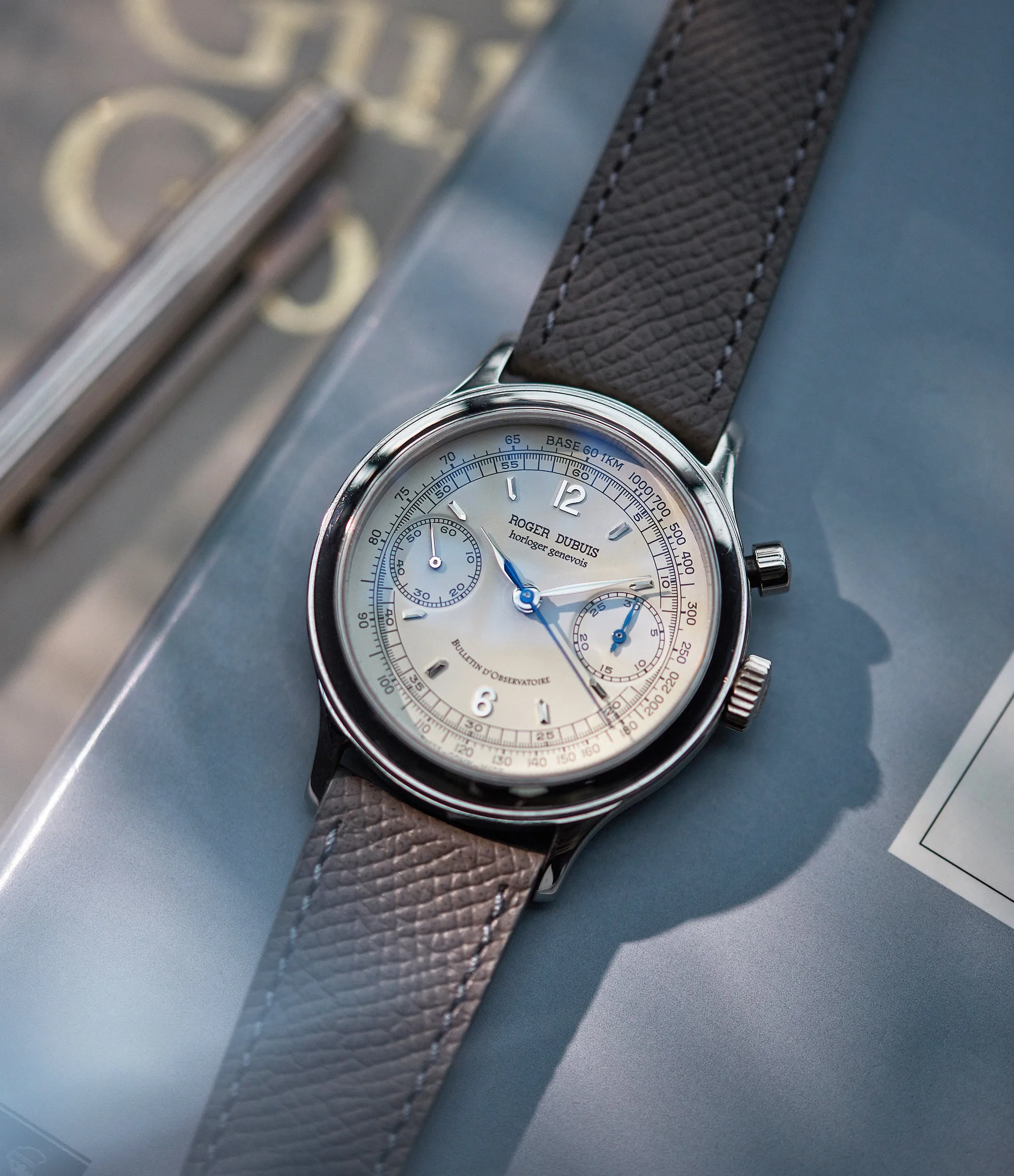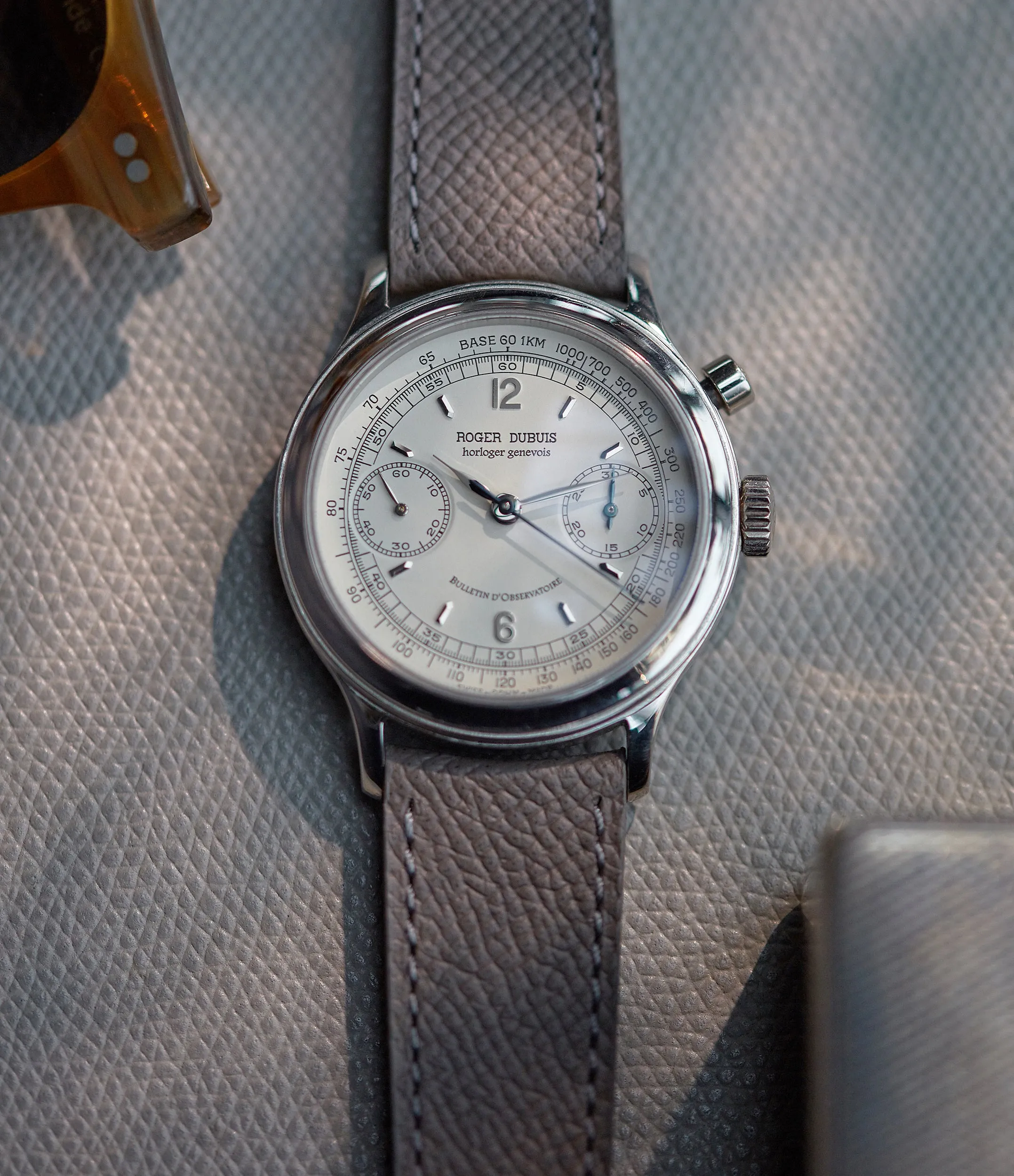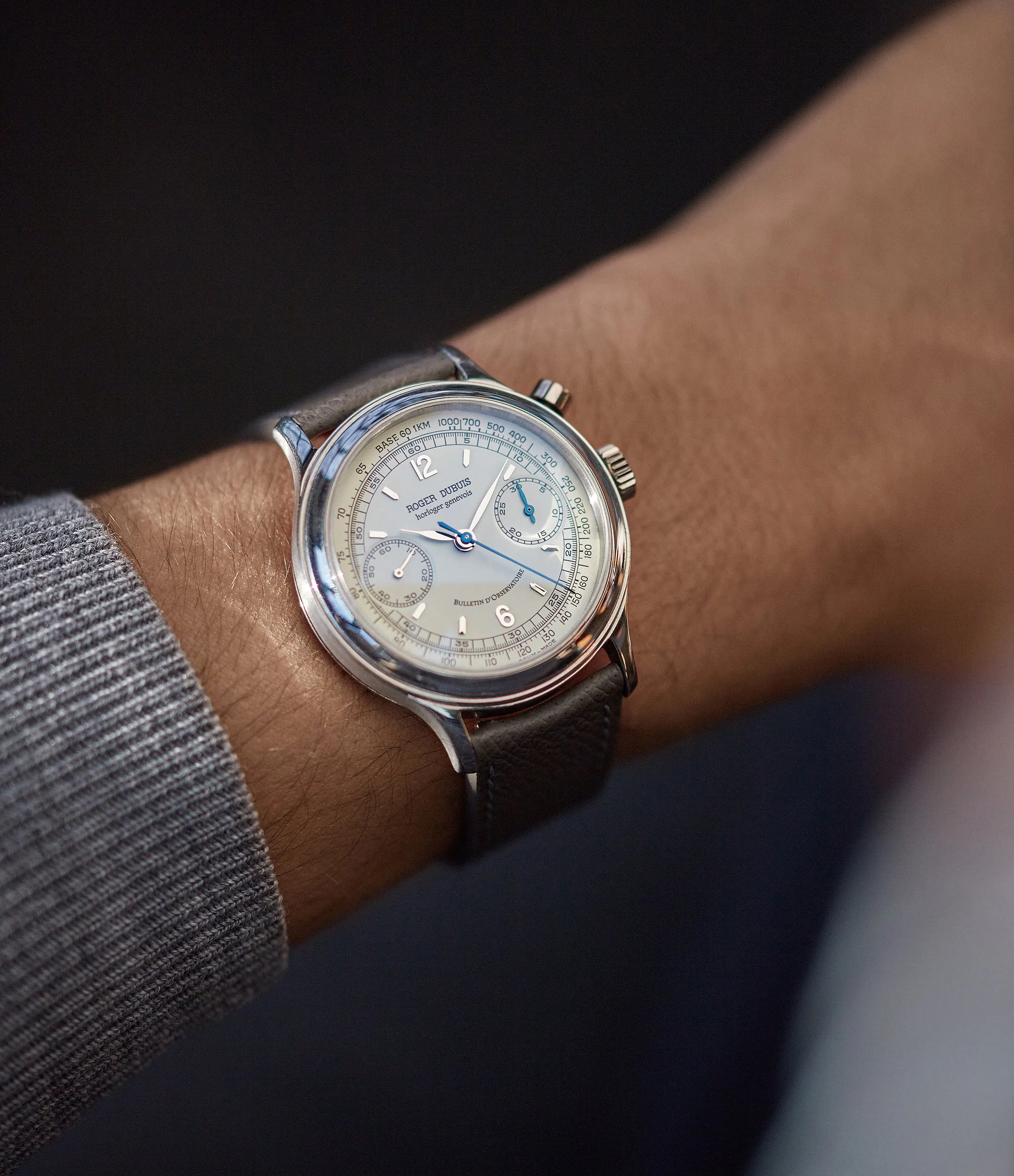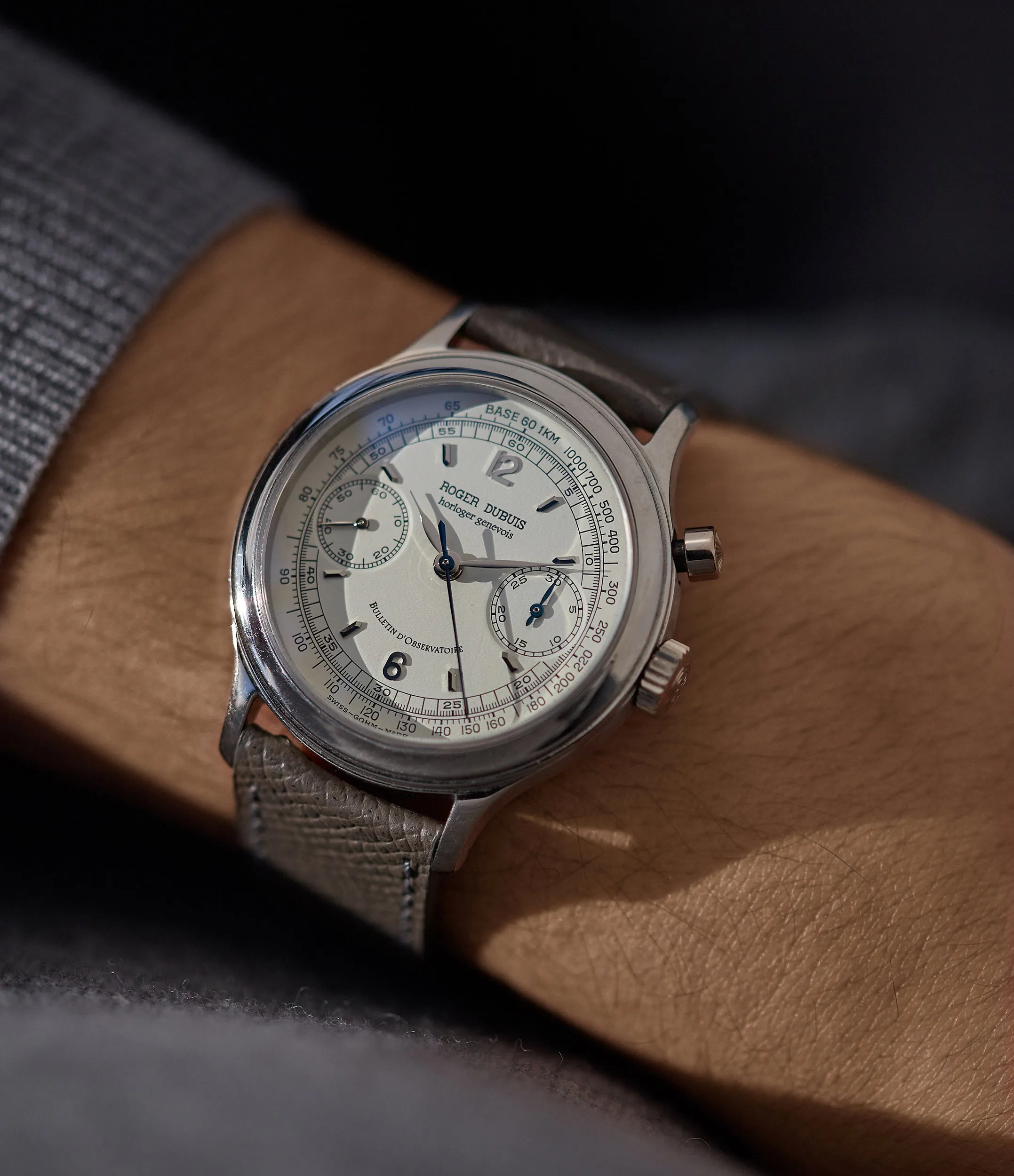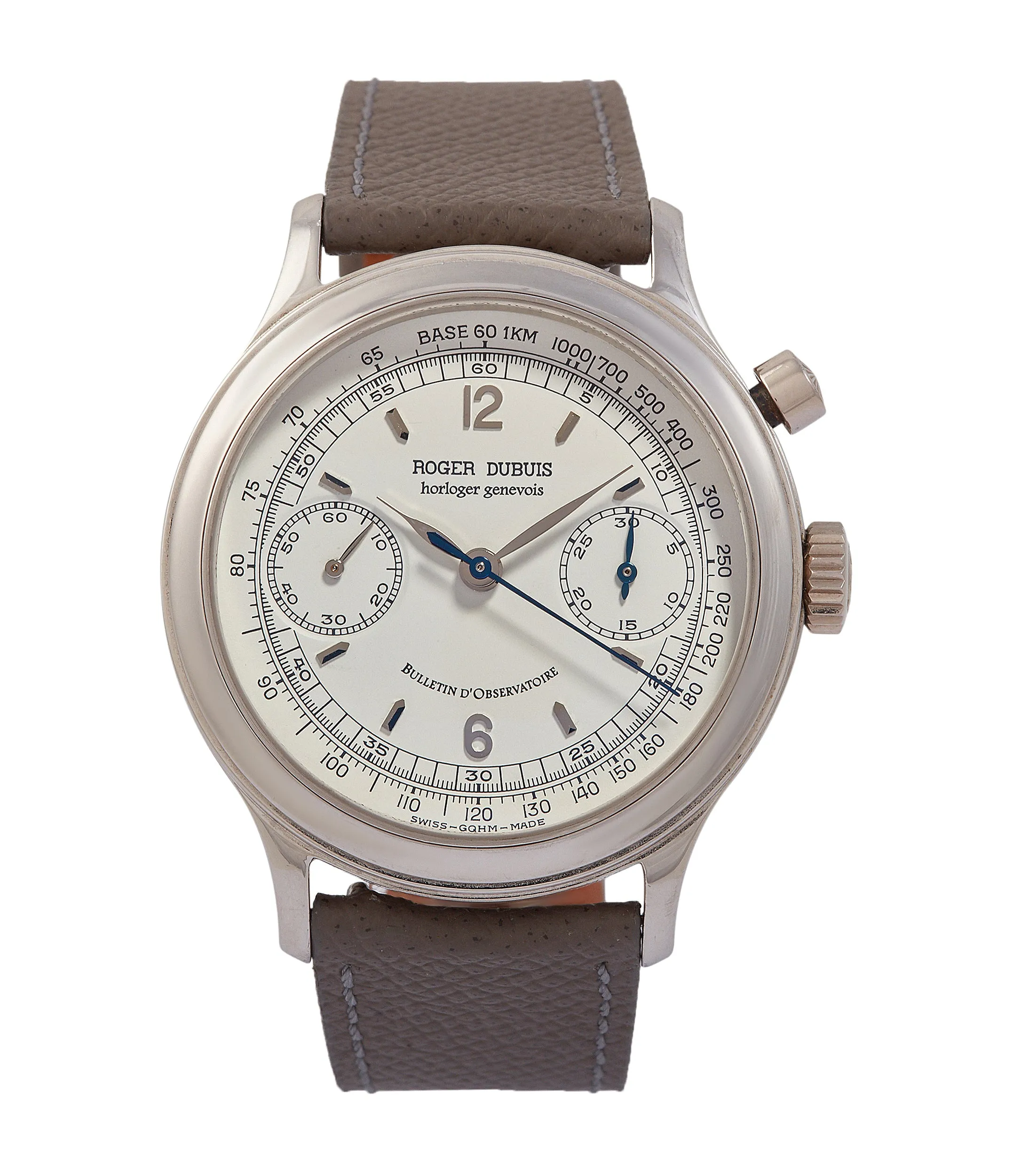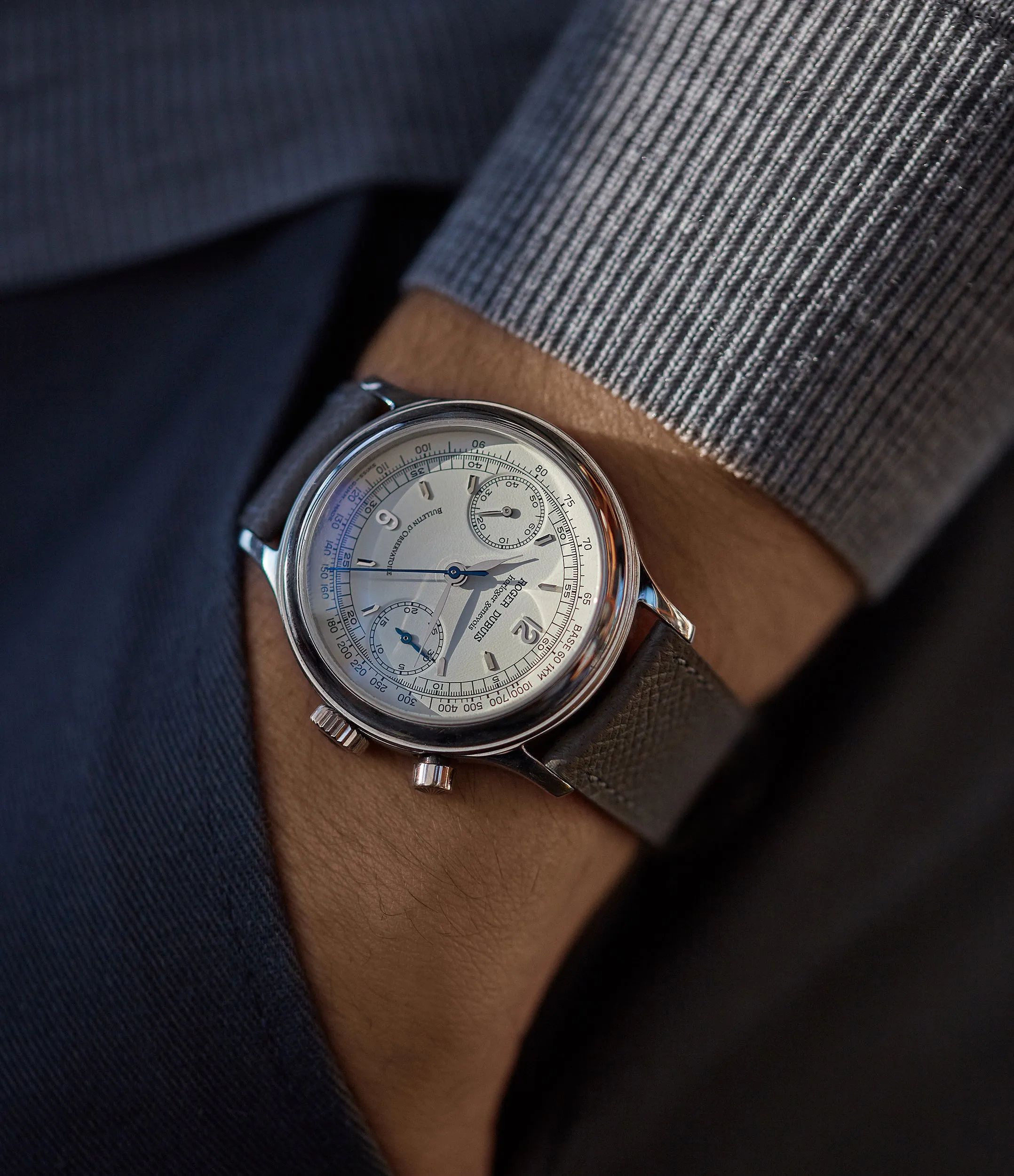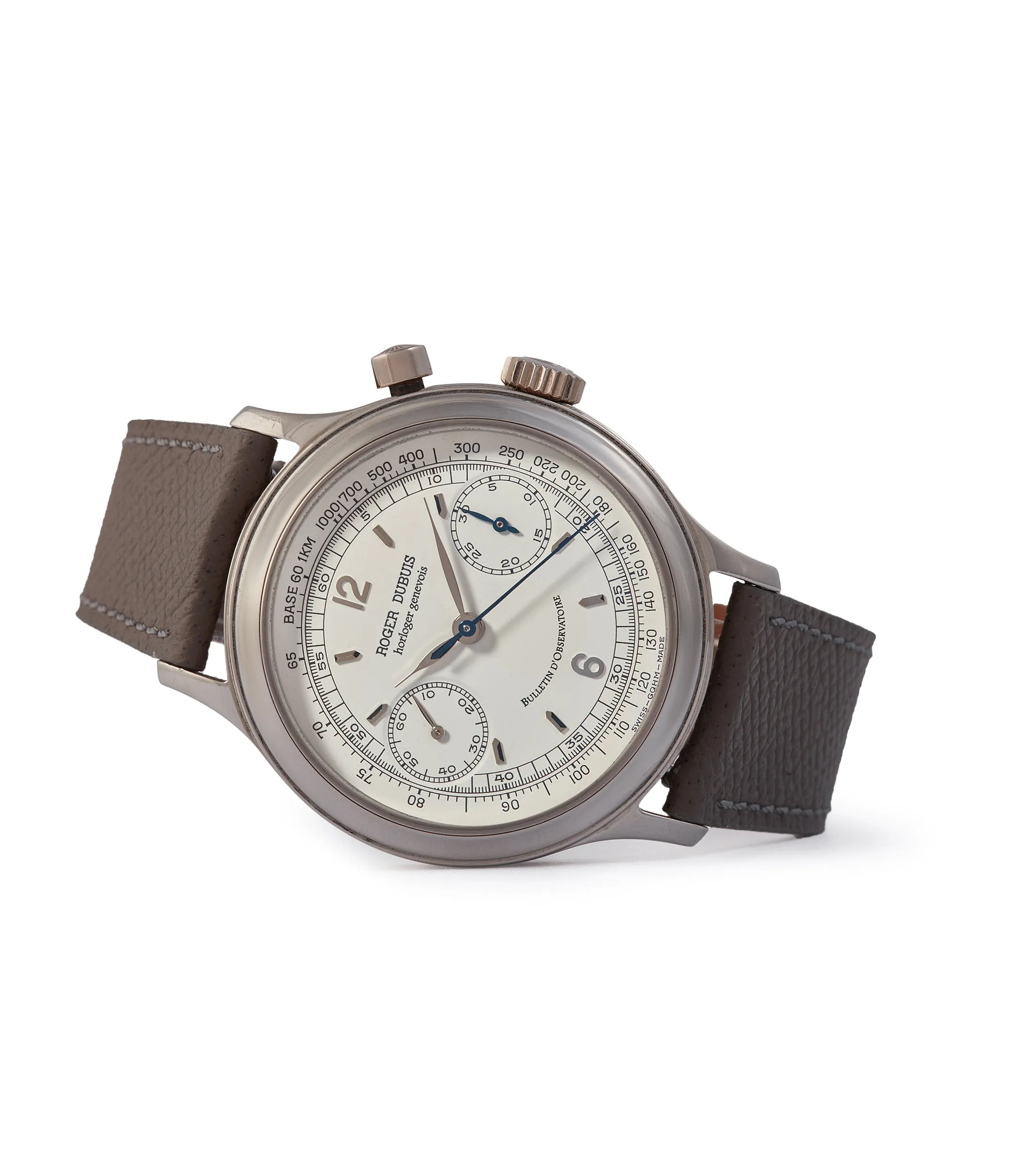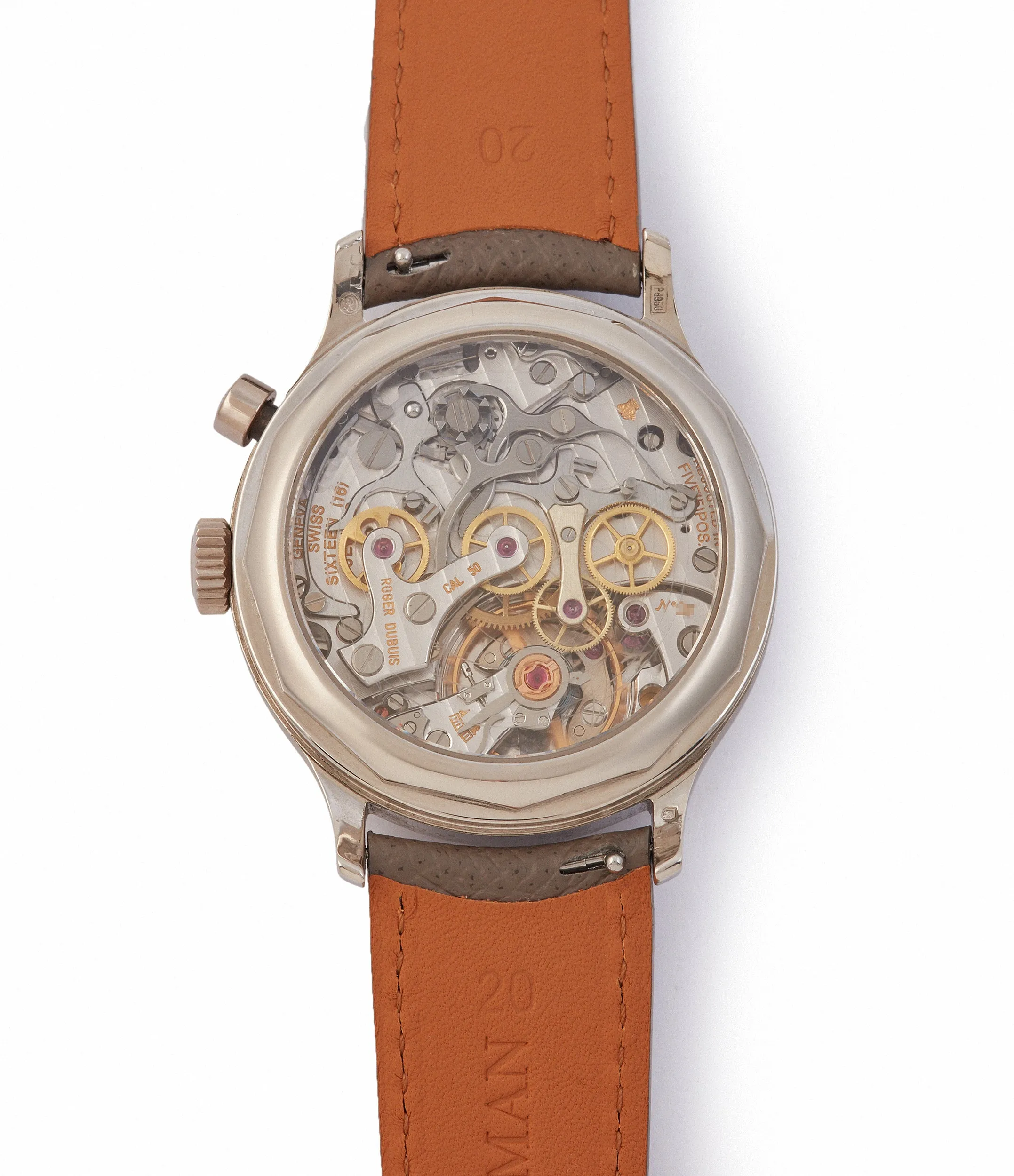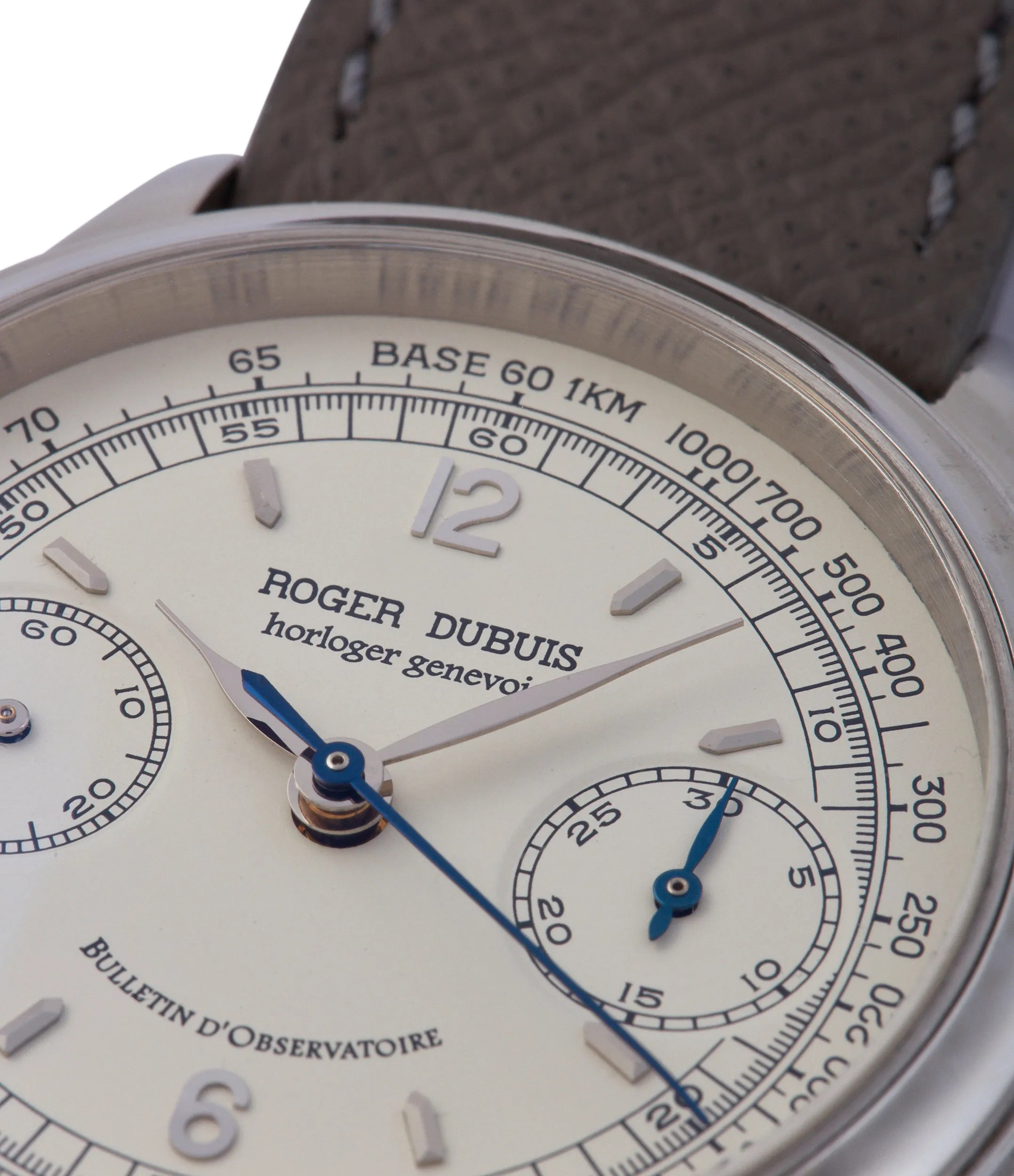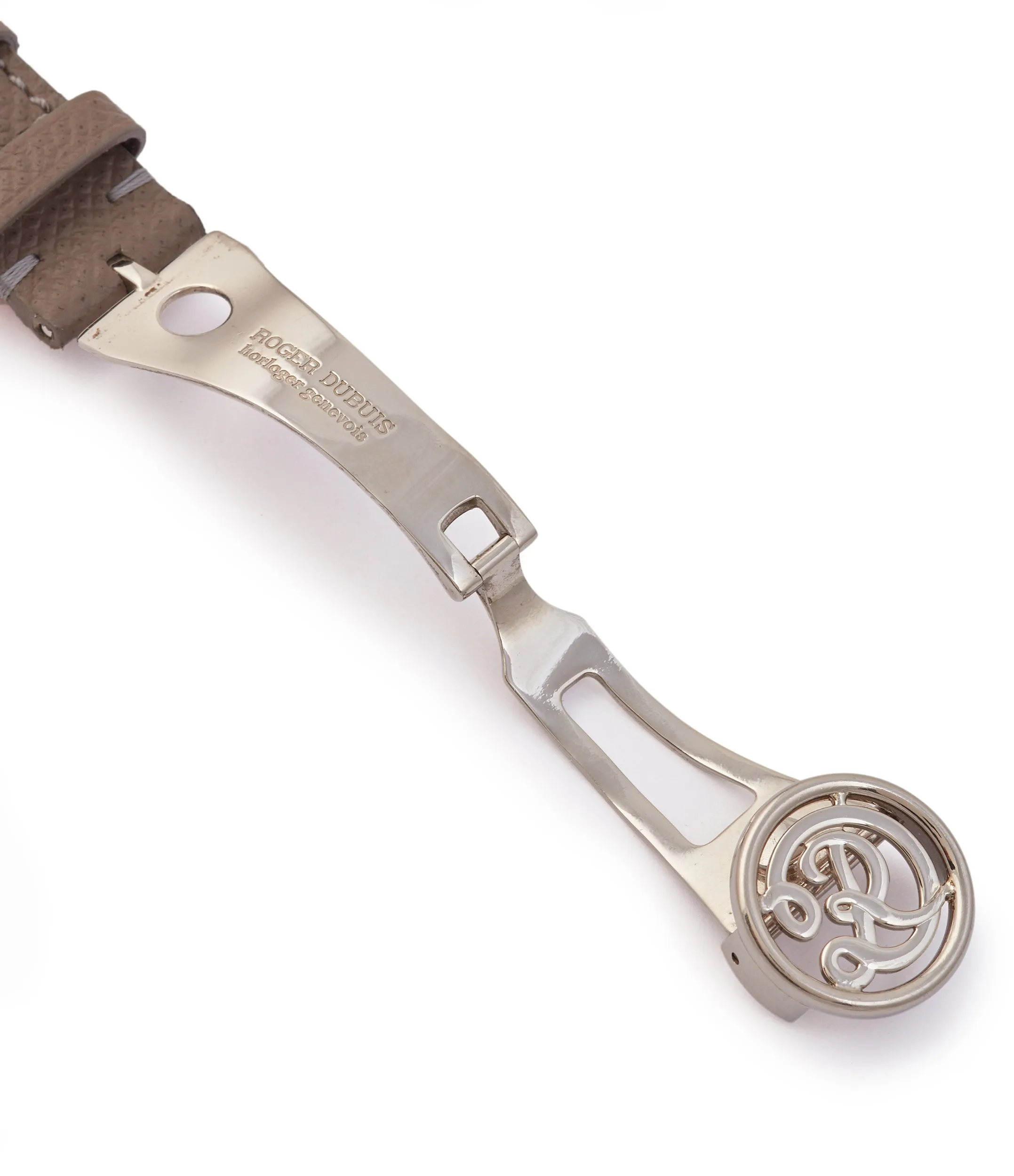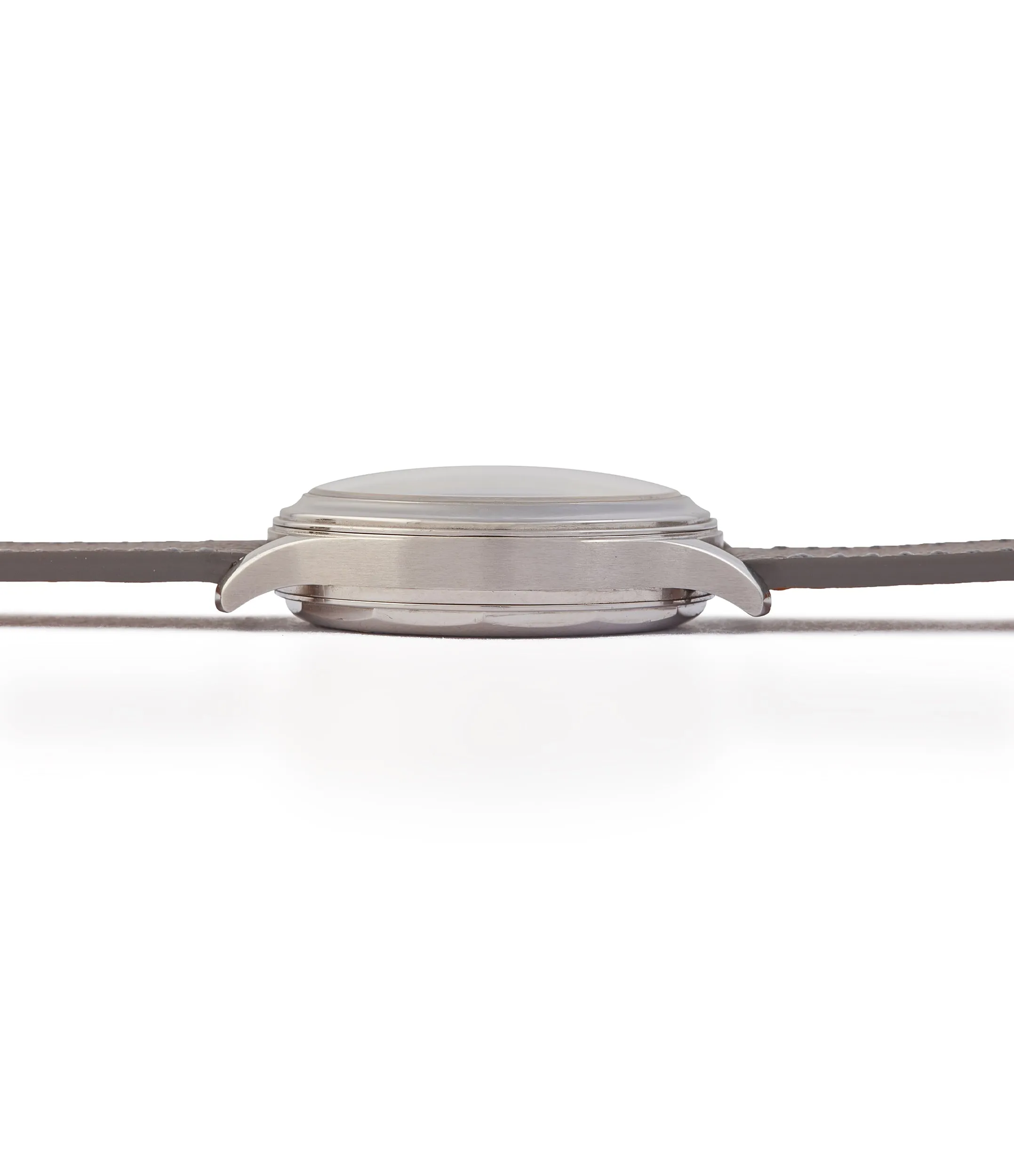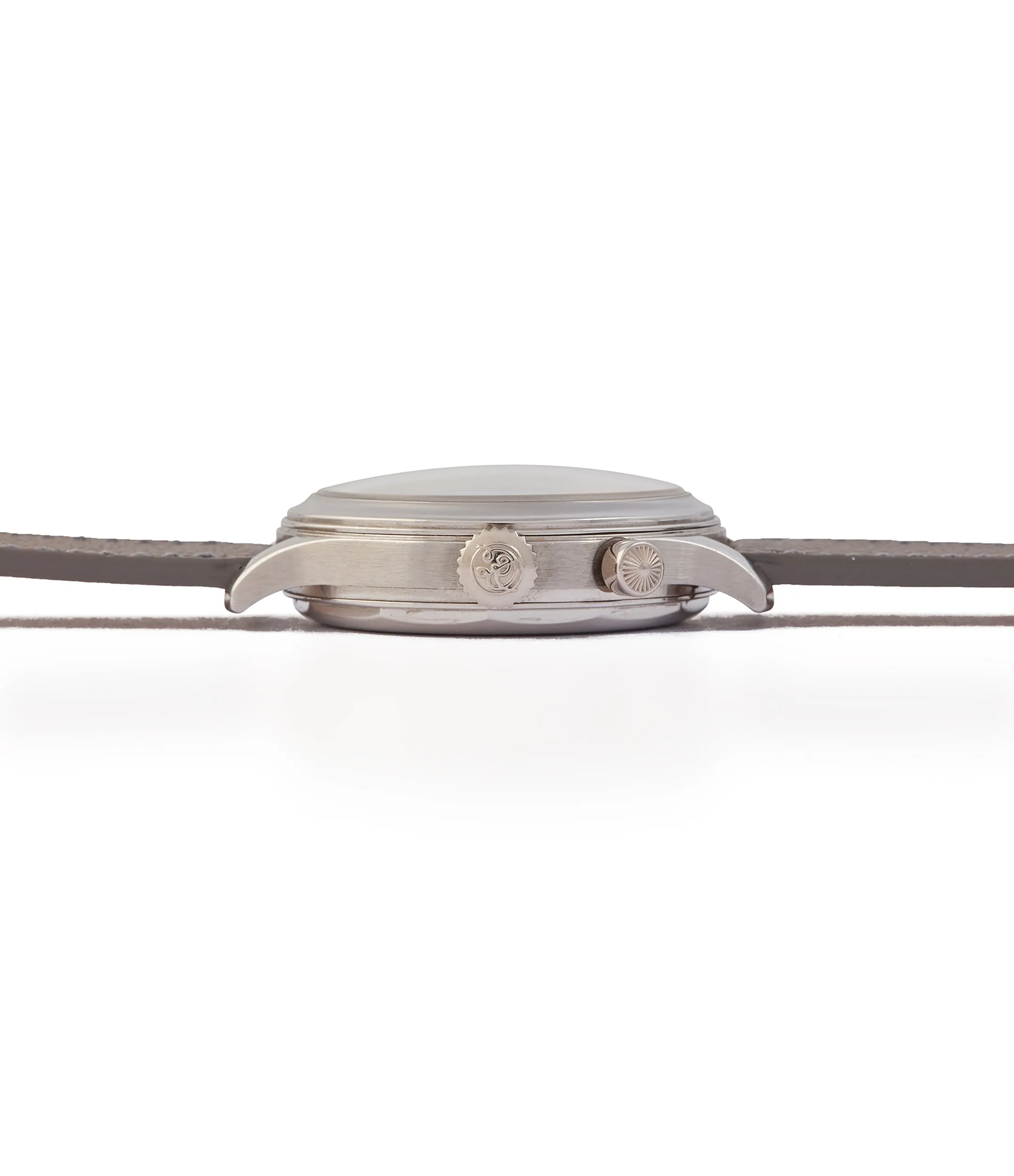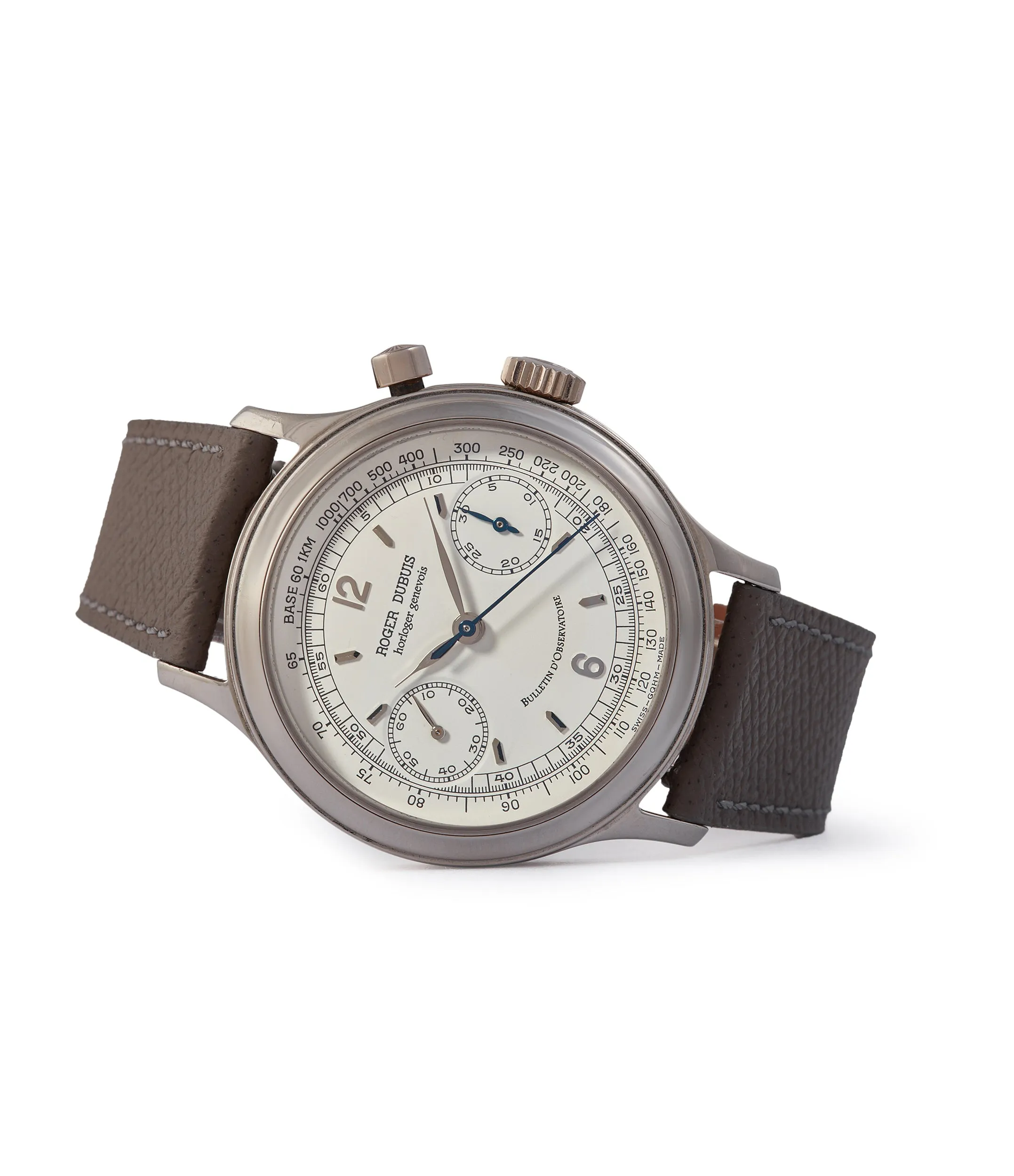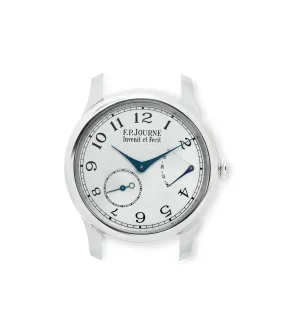Believed to be limited to 19 pieces, this Roger Dubuis Hommage Monopusher integrates a range of unusual and attractive features, from its 39mm palladium case to the asymmetrical placement of its pusher. Powered by the calibre RD 50, only found in these asymmetrical monopushers, it represents the earliest brush strokes of the watchmaker.
The origin of Roger Dubuis
Roger Dubuis started his career at , in the late 1950s, where he spent close to a decade in the after-sales department, repairing and caring for the brand's watches, including their prestigious chronographs. Shortly thereafter, he integrated Patek Philippe's complications department, where he has the opportunity to work on gongs, minute repeaters and perpetual calendars, among others. His time there coincided with the production of some of the manufacture's most sought-after, complicated models - from the ref. 2499 to the - which Dubuis himself had the opportunity to work on.
Dubuis' enthusiasm for watchmaking was such that, when he had finished working a full day at the atelier, he would go home and work on repairing watches for private clients, auction houses and dealers around Geneva. In the '80s, he left Patek Philippe to establish his own workshop, dedicating himself fully to the restoration of pieces from the past. In 1995, following a partnership with businessman Carlos Dias, he would establish his own eponymous brand.
The first Roger Dubuis watches were acclaimed by collectors because they channelled the traditional Geneva watchmaking that Patek Philippe embodied, while having more stylistic flair. Dubuis' attempt to rival Patek Philippe themselves was obvious in some of his choices, from seeking the Geneva Seal for his movements to designing deployante buckles. In particular, the Hommage watches, as the name suggests, were designed as a homage to the great watchmakers of old, according to Mr Dubuis.
The Monopusher
Roger Dubuis produced a small handful of monopusher chronographs during the earliest days of the brand. While most of these integrate the pusher within the crown at 3 o'clock, a few were also produced with the pusher placed at 2 o'clock, in an asymmetrical position. The former integrates the RD Calibre 65, based on the Lemania 2310, whilst the latter is powered by the RD Calibre 50, based on the Lemania 2220 (in many ways the predecessor of the 2310).
Traditionally, it is understood that each variant of the Hommage series was limited to 28 pieces. However, these asymmetrical monopushers are believed to have been limited to 19 pieces in each variant, rather than 28, making these pieces as rare as they are attractive. This specific example is one of the first five in the series, as indicated by the number on the movement ("N.0X"). These asymmetrical monopushers are also the only early Roger Dubuis pieces housed in a 39mm case, with others usually coming in 34, 37 or 40mm.
The design
The dial design is that of a two-register chronograph, with a cream dial and polished white gold details, including applied Roman numerals at 12 and 6 o'clock. The chronograph sub-dials are lightly recessed, lending some depth to the overall design. The feuille hands are white-gold, while the chronograph hand is blued. A tachymeter scale is printed around the periphery, executed in a classic font found throughout the dial.
The case is very distinct with its polished, stepped concave bezel and polished lugs. It’s also made of palladium - a rare white metal which resembles platinum, yet is considerably lighter, harder and more resistant to scratches. Usually found in white or rose gold, early Roger Dubuis pieces in this palladium are rather unusual, with . A "PD950" hallmark is visible on the top left lug.
The three-piece construction gives the watch a bold presence on the wrist, measuring 39mm in diameter. The pusher at 2 o'clock features a flared finish, reminiscent of the design found on the Patek Philippe , another subtle hommage to the manufacture. In a continuation of this theme, this Hommage Monopusher also features a palladium deployante clasp, similar to those produced by Patek Philippe at the time.
The movement
The watch is powered by the Calibre RD 50, powered by the Lemania 2220, originally created in 1933. It is believed that this calibre was used exclusively within these asymmetrical monopushers, making these movements remarkably limited in number.
The movement bears the Seal of Geneva and was regulated by Roger Dubuis himself. At the time of production, it was only Patek Philippe movements that carried the Geneva Seal, hence why Dubuis felt that it was crucial to have the same hallmark of quality. The seal focuses on the art of decorating a movement with finesse and skill, in the style of Genevan watchmaking.
The complexity of the movement is revealed through an engraved sapphire case-back, featuring a 16 jewel, straight-line lever escapement, a monometallic balance adjusted to five positions, a self-compensating Breguet spring and a swan-neck micrometer regulator. As indicated by the "Bulletin d'Observatoire" signature on the dial, this movement was tested for accuracy at the Besançon Observatory, setting far more exacting standards than a test from the Contrôle Officiel Suisse des Chronomètres (COSC).
The set
This Roger Dubuis Monopoussoir H39 in palladium is accompanied by its original wooden box, instruction manual and Roger Dubuis service paperwork (from March 2017). It comes on one of our straps, with its original palladium deployante buckle.
To find out more about the earliest days of the watchmaker, you can read our article on .
Closer look
| Brand: | Roger Dubuis |
| Model: | Hommage Chronograph Ref. H39 |
| Movement: | mechanical manual-winding Cal. RD 50 |
| Functions: | monopusher chronograph, hours, minutes, sub-seconds |
| Features: | display back, applied numerals, tachymeter scale |
| Case: | 39mm palladium |
| Crystal: | sapphire front and back |
| Strap: | curved strap, Roger Dubuis palladium deployante buckle |
| Year: | c. 2000 |
| Box & papers: | original wooden box, instruction manual, Roger Dubuis service paperwork (from March 2017) |




